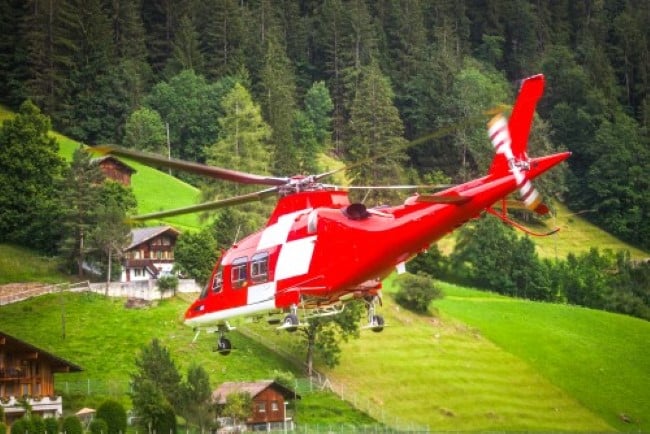Pediatric DKA: Don't Fear the Fluids
Pediatric DKA: Don't Fear the Fluids!
March 15, 2020
In this episode, EMRA*Caster Dr. Jessie Werner speaks with Professor and Chair of Emergency Medicine at UC Davis, Dr. Nathan Kuppermann, about ground-breaking research in Pediatric DKA. Learn the dos and don’ts of management and learn to embrace those fluids!
Host
Jessie Werner, MD
University of California San Francisco – Fresno
Fellow - Emergency Medicine Education
@JessWernerMD
EMRA*Cast Episodes
Guests
Nathan Kuppermann, MD, MPH
Professor and Chair, Department of Emergency Medicine
Specialty: Pediatric Emergency Medicine
Hospital Affiliation: University of California Davis Medical School
Residency: Harbor UCLA Medical Center
Twitter: @nkuppermann
Overview
Why do we fear fluids in pediatric DKA patients? Do they really cause cerebral edema or is that just what you’ve been taught for years? Did you know that with each episode of DKA children lose some memory?
In this episode of EMRA*CAST, Dr. Jessie Werner speaks with Dr. Nathan Kuppermann about ground-breaking research in Pediatric DKA. Learn the dos and don’ts of DKA management in children and understand why you should embrace the fluids!
Key Points
- DKA: pH<7.25 or bicarb <15 with ketones in the urine
- Pediatric DKA patients who develop cerebral edema don’t do so because of fluids, but because they are SICKER
- Several risk factors have been identified for developing cerebral edema:
- higher BUN (greater dehydration)
- lower bicarb (worsening acidosis)
- bicarbonate administration
- serum sodium not rising as expected as glucose went down
- The brain in DKA is dehydrated and inflammatory markers are elevated. Brain reperfusion can result in vasogenic edema (similar to what is seen in stroke patients)
- When rehydrating DKA patients:
- replace this 4L over 48 hours in addition to maintenance fluids (4:2:1 rule)
- Calculate the fluid deficit (assume 7-10% and base this on body weight)
- example: 40-kg child who is 10% dehydrated is 4L down
- if you suspect cerebral edema, do not wait to initiate treatment
References
- Kuppermann N, Ghetti S, Schunk JE, et al. Clinical trial of fluid infusion rates for pediatric diabetic ketoacidosis. N Engl J Med. 2018;378:2275-2287.
- Glaser NS, Ghetti S, Casper TC, Dean JM, Kuppermann N, Pediatric Emergency Care Applied Research Network (PECARN) DKA FLUID Study Group. Pediatric diabetic ketoacidosis, fluid therapy, and cerebral injury: the design of a factorial randomized controlled trial. Pediatr Diabetes. 2013;14(6):435–446.
- Glaser NS, Wootten-Gorges SL, Marcin JP, et al. Mechanism of cerebral edema in children with diabetic ketoacidosis. J Pediatr. 2004;145:164-171.
- Glaser N, Barnett P, McCaslin I, et al. Risk factors for cerebral edema in children with diabetic ketoacidosis. N Engl J Med. 2001;344(4):264-269.
- Pediatric Emergency Care Applied Research Network (PECARN) http://www.pecarn.org/
Related Content

May 26, 2023
PD Interview Saks at Crozer Chester
In the latest installment of our PD Q&A series, we are highlighting the Crozer Chester Medical Center Emergency Medicine Residency program. We spoke with the current PD Dr. Mark Saks, MD, about what makes his program unique and what he looks for in potential residents.

Apr 16, 2023
Taking to the Sky: Launching an EM Resident Flight Physician Program
Resident involvement in air medical transport leads to significant mutual benefit for residents, residency programs, and flight programs. Residents gain unique clinical experiences and broaden their understanding of AMT and diversity of care settings. Residency programs benefit from the experiences of their residents. Flight programs gain enthusiastic and knowledgeable groups of new physicians who can augment the organization’s educational and clinical capabilities. Starting a resident flight program requires careful planning and significant coordination of stakeholders, but the result is an outstanding clinical experience for clinicians and patients alike.

Jan 17, 2024
Optimism vs. Realism — Let’s Call it a Tie
As the voice of emergency medicine physicians-in-training and the future of our specialty, EMRA continues to believe that the future of EM is bright while remaining committed to facing reality and addressing our headwinds. I invite you all to join us in this Stockdale Paradox-esque approach.





